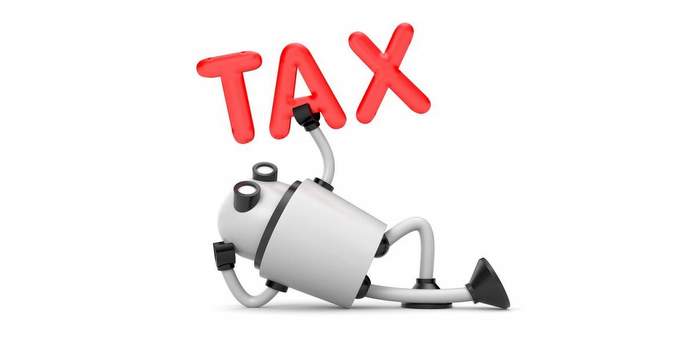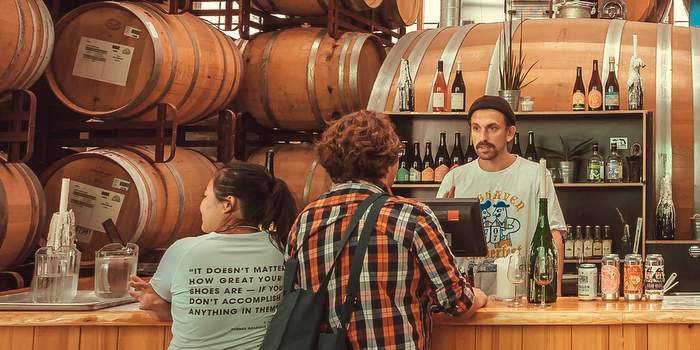Breweries and distilleries often overlook the potential tax savings opportunities available with the R&D tax credit. As most breweries invest resources and time toward improving processes and developing new products, the R&D tax credit could provide your tasty venture dramatic tax savings. Recent legislation has made the credit permanent and also enhanced its application by not limiting it to AMT (Alternative Minimum Tax) as well as providing a new potential payroll tax credit offset opportunity.
The R&D credit is a dollar-for-dollar benefit-against-tax designed to stimulate efforts aimed at the advancement of U.S. companies. While it is primarily federal, certain states offer their own version as well. Computation of R&D is fairly complex and entails several different elections. The credit is primarily derived from an allocation of employee time, consultant expense and related R&D supplies.
RELATED: A primer on bonds, taxes and popular markets for new craft breweries
As of January 2016, eligible small businesses ($50 million or less in gross receipts) may claim the credit against the AMT. This will benefit a significant number of closely held businesses and their shareholders who previously had to defer some or all use of their credit due to the AMT limitations. Additionally, certain small businesses ($5 million or less in gross receipts) will have the ability to offset the credit-against-payroll tax liability (capped at $250,000 for up to five years). There are many complexities to this law and how to apply it to your business.
Your activities must meet the following criteria in order to qualify for the R&D credit:
• Technical in Nature: Though the R&D credit is not just for scientists, its application is science-based. To qualify, research and development activity must rely on the principals of engineering, physics, biology or computer science.
• Permitted Purpose: Contrary to popular belief, R&D does not exclusively pertain to new products. Taxpayers can reap the benefits of R&D as long as they are working on projects undertaken for the development of a new or improved aspect of their business. Processes, functions, products, quality increases and substantial cost reductions all fall under the umbrella of permitted purposes.
• Process of Experimentation: Qualified research involves an element of trial and error. The venture’s process of experimentation must be designed to evaluate alternatives to achieve a result where the potential to achieve that result is initially uncertain. Measures that are taken to produce a hypothesis and test it are noted by the IRS when deciphering which research and development activities are entitled to the R&D credit.
Examples of R&D activities within the brewing industry
- Adding new equipment pertaining to process improvement or new bottling/brewing equipment;
- Developing new or improved hopping techniques or varieties of hops;
- Developing new or improved yeast strains or fermentation processes;
- Developing new or improved bottling and canning processes;
- Developing new or improved bottle designs (including cans/crowns, etc.);
- Developing new or improved keg filling techniques, water recycling or waste management;
- Developing new or improved product formulations or improved ingredient mixing methods;
- Developing new or improved prototype batches or improved preservatives;
- Testing of new or improved designs to ensure shelf life or longevity; and
- Testing of product ingredient combinations relative to new flavors or enhancements.
Remember: Document everything
To support qualified research, brewers and distillers must maintain documentation on paper or electronically. In addition to issuing logs and meeting minutes, taxpayers may utilize email communications, technical reports and patent applications to warrant the R&D credit.
Where there is indication of efforts to improve an existing process, research and development documentation is broad and takes many forms. Between information provided by taxpayers (or lack thereof) and the standards set by the IRS, distribution of the R&D credit can be challenging. This difficulty has shown up time and again in numerous court cases over the years.
Keeping detailed records of research and development activities and consulting with a CPA firm that understands the credit can prevent future headaches and maximize your credit opportunity.
David Natan, CPA, MST, CVA is a partner and Certified Valuation Analyst at Newburg & Company, Certified Public Accountants. He can be reached at [email protected].







Breweries and distilleries often overlook the potential tax savings opportunities available with the R&D tax… https://t.co/DDZ7C5EoVW
@peakprofitsadvs @CraftBrewingBiz hi
RT @zjrobins: R&D tax credit opportunities for craft breweries https://t.co/8dBUedWHRt
R&D tax credit opportunities for craft breweries https://t.co/YDyoTZL6SH
R&D tax credit opportunities for craft breweries https://t.co/8dBUedWHRt
R&D tax credits: Here’s what your craft brewery should be writing off https://t.co/BWizUkFE77 via @craftbrewingbiz
It’s never too early to start preparing for #tax season! What your #CraftBrewery should be writing off: https://t.co/FiHMoFFRf7
R&D tax credit opportunities for craft #researchanddevelopmenttaxcredit #r&dtaxcredit https://t.co/brT14d50dG https://t.co/WV9cTCJH0g
Scott Davidson liked this on Facebook.
Jerry Elliott liked this on Facebook.
R&D tax credits: Here’s what your craft brewery should be writing off https://t.co/q0avsh4itQ via @craftbrewingbiz
RT @CraftBrewingBiz: R&D tax credits: Here’s what your craft brewery should be writing off https://t.co/fumY5cRd7g advice via @NewburgLLP
Corey Lord liked this on Facebook.
#CraftBeer #LocalBreweries #DrinkLocal #IPA #Brewery R&D tax credits: Here’s what your craft brewery should be … https://t.co/WK6igabTC6
R&D tax credits: Here’s what your craft brewery should be writing off https://t.co/7016pTqrh0 #beer #craftbeer